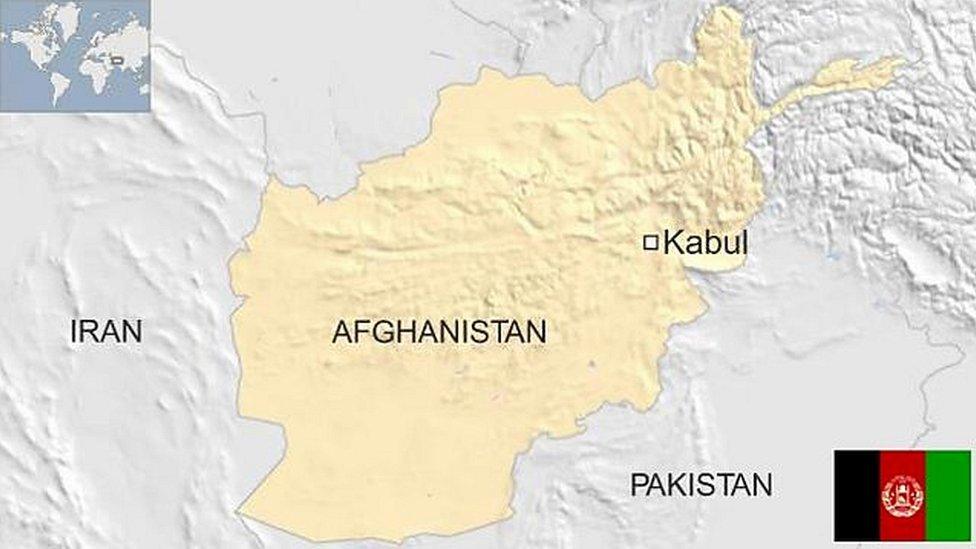Profile: New Taliban chief Mawlawi Hibatullah Akhundzada
- Published
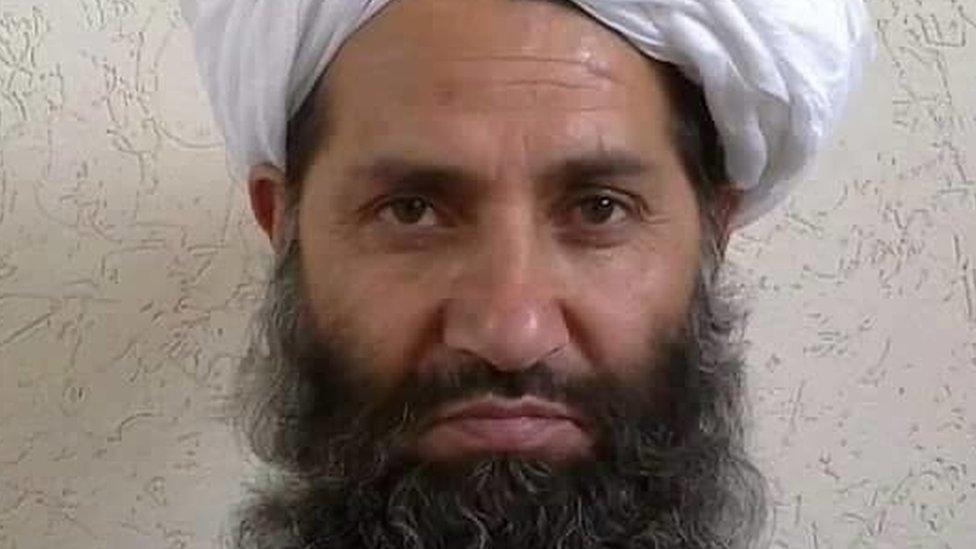
The Taliban said there was no photo of Hibatullah Akhundzada - but Afghan media soon circulated this image
The Afghan Taliban's new leader Hibatullah Akhundzada is a hardline religious scholar from Kandahar who is thought unlikely to change the group's direction.
The fact that he comes from the Taliban's traditional stronghold is likely to please rank-and-file fighters.
In the 1980s, he was involved in the Islamist resistance against the Soviet military campaign in Afghanistan, but his reputation is more that of a religious leader than a military commander.
He has been a senior figure in the Taliban courts for years and is believed to have issued rulings in support of Islamic punishments - such as public executions of convicted murderers and adulterers and amputations of those found guilty of theft.
He served as a deputy to previous Taliban chief Akhtar Mohammad Mansour, who was killed in a US drone strike on 21 May. The latter named him as successor in his will, Taliban sources told AFP, in what was seen as an attempt to legitimise the transfer.
The new leader is not as controversial as his predecessor, who led the militants for two years before news emerged that Taliban founder Mullah Omar was actually dead.
Hibatullah Akhundzada was appointed by senior Taliban figures who are said to have met somewhere near Quetta in Pakistan. However, not all members of the shura (council) were there - many apparently feared being attacked and did not show up.
The Taliban called the new appointment unanimous, although they did the same when Mullah Mansour took over last summer.
Splits soon emerged after that - and this time there could still be some disagreements, BBC correspondents say, but probably not enough to challenge the new leader's authority.
The announcement also named Mullah Mohammad Yaqoob, son of Mullah Omar, as a joint deputy head of the movement, alongside current deputy leader Sirajuddin Haqqani.
Haqqani is well known as leader of the notorious Haqqani network, which has been blamed for a string of bloody attacks inside Afghanistan in recent years.
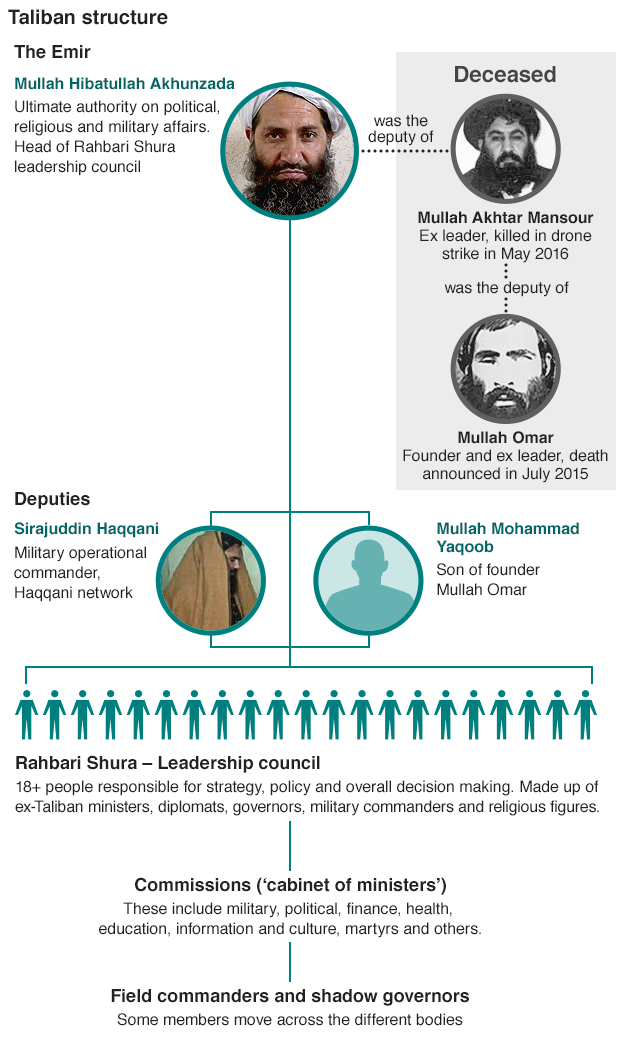

What we know about Hibatullah Akhundzada
More of a religious leader than a military commander, he has been responsible for issuing most of the Taliban's fatwas
Thought to be 55 and has lived most of his life inside Afghanistan, with little evidence of travel
However, experts say, he maintains close links with the so-called Quetta Shura, the Afghan Taliban leaders said to be based in the Pakistani city of Quetta
From southern Kandahar province, he belongs to the Noorzai tribe
Hibatullah in Arabic means "gift from God"

Born in Panjwai district in Kandahar, Hibatullah Akhundzada was quick to join the Taliban after the group emerged in the 1990s, following the withdrawal of Soviet troops.
According to Gharzai Khwakhogi, a political commentator who worked in intelligence for a while under the Taliban: "[Hibatullah Akhundzada] has lived most of his life inside Afghanistan and has maintained close links with the Quetta Shura."
When the Taliban captured Afghanistan's western Farah province, he was put in charge of fighting crime in the area.
Later, Hibatullah Akhundzada was appointed to the Taliban's military court in Kandahar and then as head of its military court in eastern Nangarhar province.
As the Taliban consolidated its grip on power in Afghanistan, he became head of the group's military court and deputy head of its supreme court.
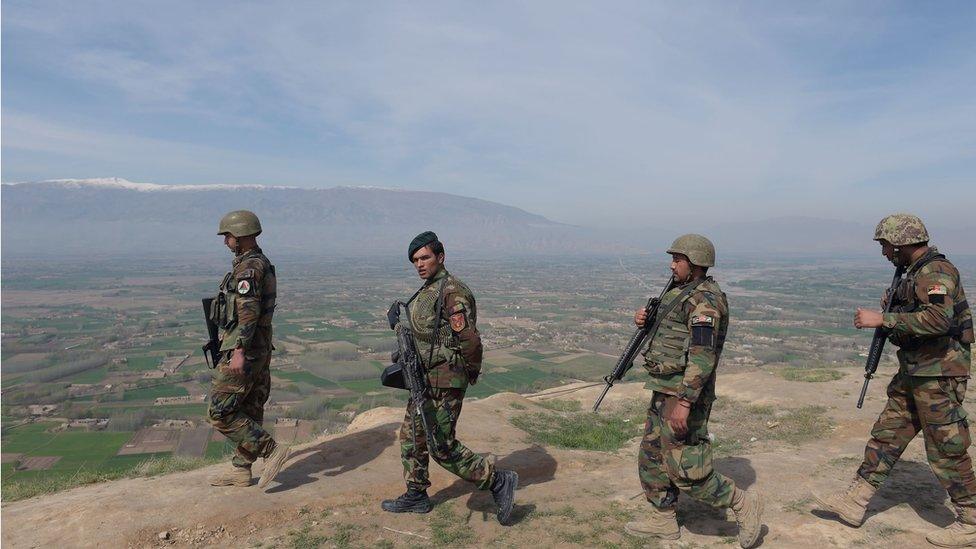
Afghan National Army soldiers have been involved in heavy fighting with Taliban militants in recent months, including here in Baghlan province
When the Taliban were toppled by the US-led coalition in 2001, he became head of the group's council of religious scholars.
He is a member of the Taliban's leadership council and has been responsible for issuing most of the Taliban's fatwas. He also reportedly ran a madrassa (religious school) near Quetta, external, which many top Taliban commanders have attended, sources within the group say.
Experts say that Hibatullah Akhundzada maintained close links with the Quetta Shura, which is understood to make the Taliban's main decisions as well as appointing its leaders.
BBC Monitoring, external reports and analyses news from TV, radio, web and print media around the world. You can follow BBC Monitoring on Twitter , externaland Facebook, external.
- Published25 May 2016
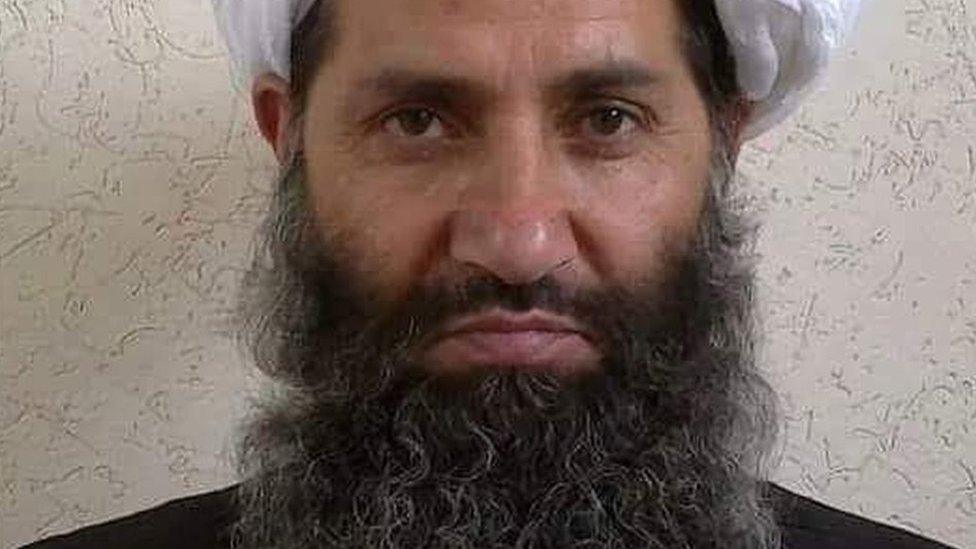
- Published24 May 2016
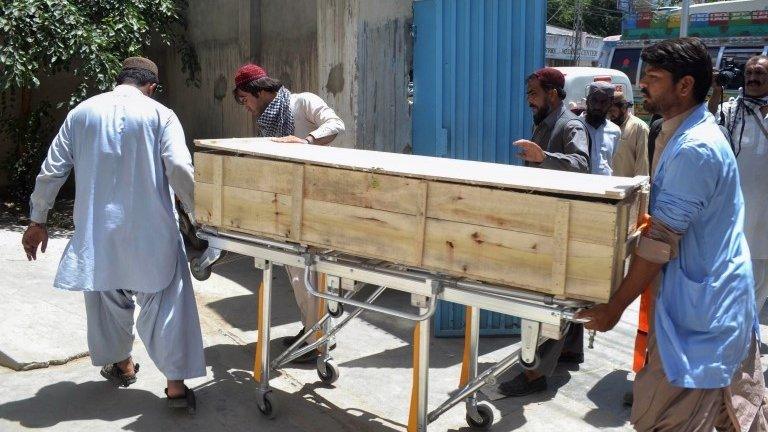
- Published22 May 2016
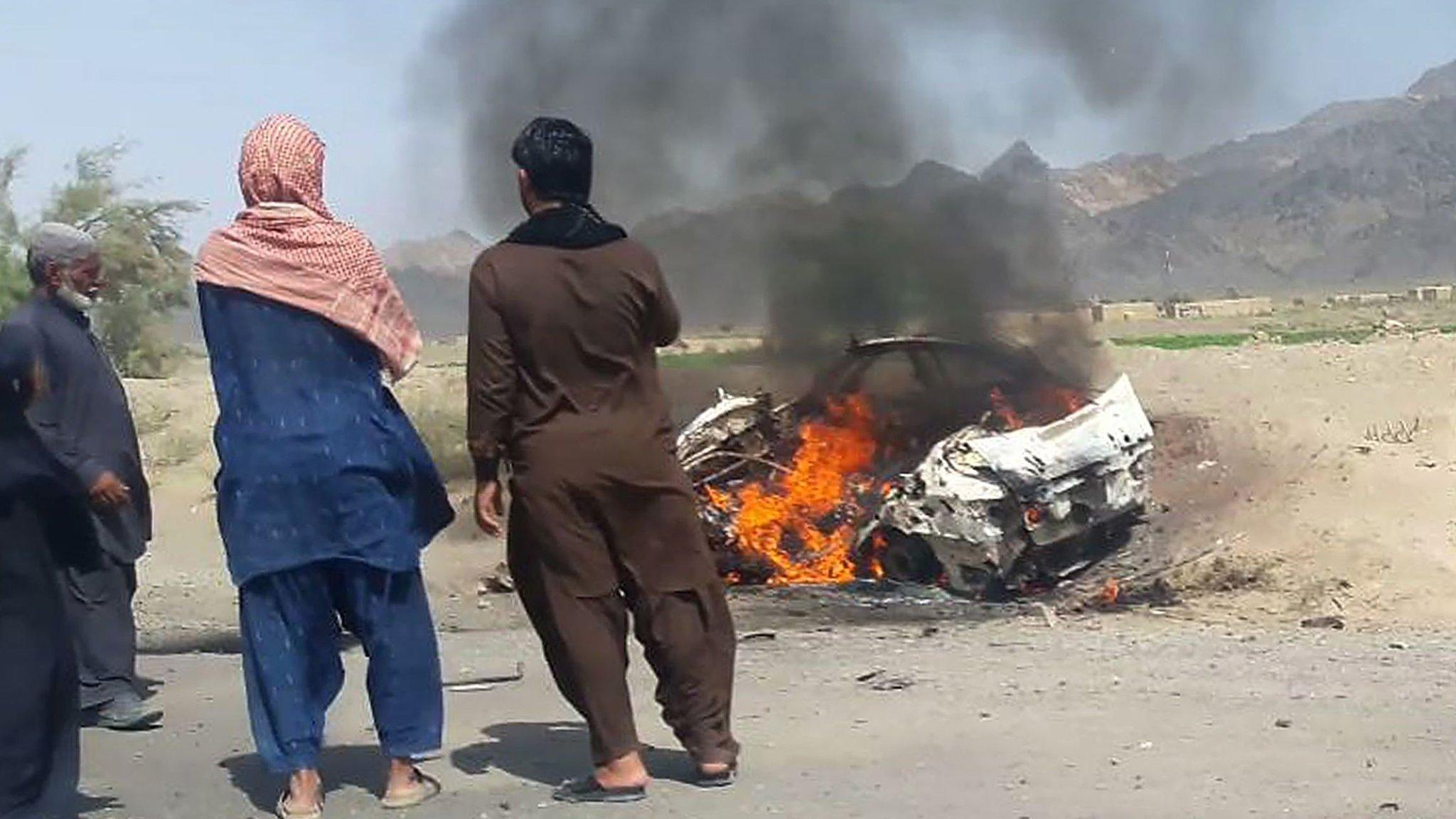
- Published10 March
